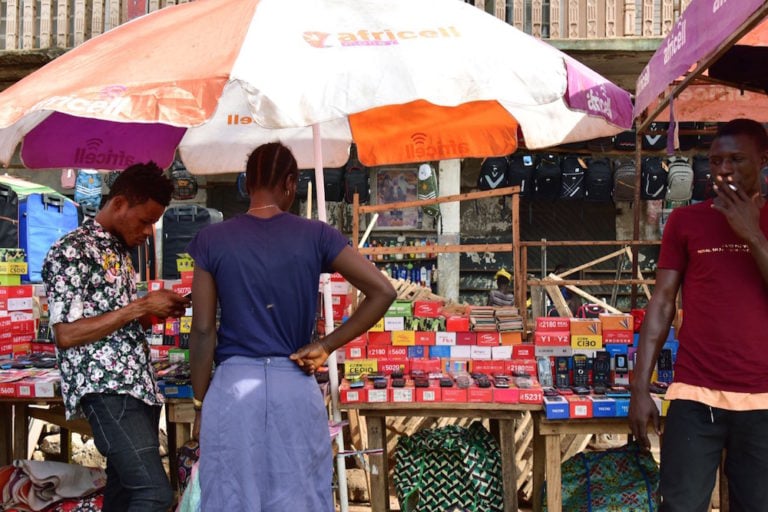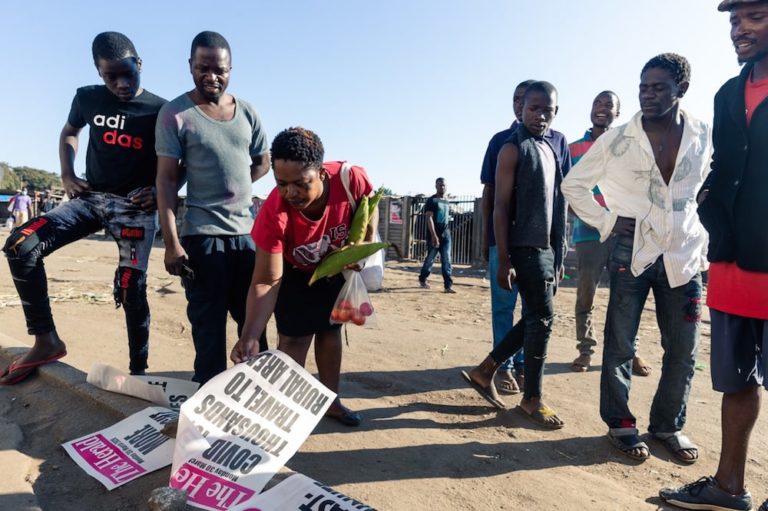(MISA/IFEX) – Namibia’s ruling party, the South West Africa People’s Organisation (SWAPO) has joined the government in an advertising and purchasing ban on “The Namibian” newspaper, because of the newspaper’s alleged “hostile attitude” towards government. SWAPO Secretary General Hifikepunye Pohamba sent letters to the party’s regional co-ordinators on Wednesday 13 June 2001, telling them not […]
(MISA/IFEX) – Namibia’s ruling party, the South West Africa People’s Organisation (SWAPO) has joined the government in an advertising and purchasing ban on “The Namibian” newspaper, because of the newspaper’s alleged “hostile attitude” towards government.
SWAPO Secretary General Hifikepunye Pohamba sent letters to the party’s regional co-ordinators on Wednesday 13 June 2001, telling them not to use the party’s funds on “The Namibian”. “The Secretary General of SWAPO party hereby directs all party regional co-ordinators as well as party functionaries at the district, branch and section levels not to advertise in or procure ‘The Namibian’ newspaper with party funds,” wrote Pohamba. He added that SWAPO supports the government’s decision not to advertise in or purchase “The Namibian” with “public money under its care.”
SWAPO Chief Administrator Andre Hashiyana said the party’s businesses are also expected to follow suit. He stated: “Of course, if they are SWAPO businesses, they should do what the owner is doing. They cannot remain indifferent if they are wholly owned by SWAPO. (â¦) SWAPO money cannot be used to buy or advertise in ‘The Namibian’.”
BACKGROUND:
The government decided in December 2000 to stop advertising in “The Namibian”, saying that the newspaper had made “unwarranted criticism” of its policies. In addition, President Sam Nujoma issued an order in late May, forbidding all government departments from buying the newspaper.
Simultaneously, the government claims that in the country, “Freedom of the media and expression have been and remain unfettered.” In a recent statement, it declared that that since independence in 1990, the government “has never harassed, arrested or detained any newspaper editor or journalist or ever banned any newspaper in our country”.
Research by MISA and other media organisations does not sustain this claim:
– On 3 May, as International World Press Freedom Day was celebrated in Windhoek, Namibia, international journalists covering the celebrations were informed they were not allowed to report on anything other than the media events while in Namibia. International media organisations protested.
– In April, President Nujoma referred to the Namibian press in general as “very reactionary.” Nujoma has headed government campaigns against the independent media and specific journalists, increasingly making hateful statements about them.
– On 6 April, Nujoma made racist remarks to a white Namibian BBC journalist, saying she was siding “with the enemy.” He also claimed the media only wanted “to waste other people’s time.”
– On 15 March, a SWAPO MP physically attacked a journalist and sent a mob out to get him for not being black.
– On 10 January, the ministry of foreign affairs called on the newly appointed board of directors of the government-funded newspaper “New Era” to take journalist David Kashweka to task for a critique he wrote on the volatile situation in the Kavango region.
– On 4 November 2000, the leader of SWAPO’s Youth League, Paulus Kapia, lashed out harshly against “The Namibian” newspaper and stated that the party’s youth wing was planning an all-out assault on the newspaper.
– In July 2000, President Nujoma intended to sue the weekly “Windhoek Observer” newspaper for reporting that he owns a diamond mine in the Democratic Republic of Congo.
– On 2 May 2000, SWAPO members of parliament called for action against the country’s state-owned newspaper “New Era”, because of its reporting. “New Era” should “propagate” the government’s mission, but was allegedly not doing so.
– In February 2000, a Namibian court laid charges of contempt of court against “The Namibian” and “Die Republikein” for critical reporting about a high court ruling.
– On 4 February 2000, Minister Pendukeni Ithana accused certain newspaper editors of working hand in hand with the political opposition, thus alleging that the press was foreign-owned and out to “hoodwink” the nation.
Notes:
– A statement by the Namibian government can be found at: http://www.grnnet.gov.na/News/Archive/2001/June/Week1/gov_banned_rpt.htm
– “The Namibian”, afrol.com and IRIN contributed to this report.


